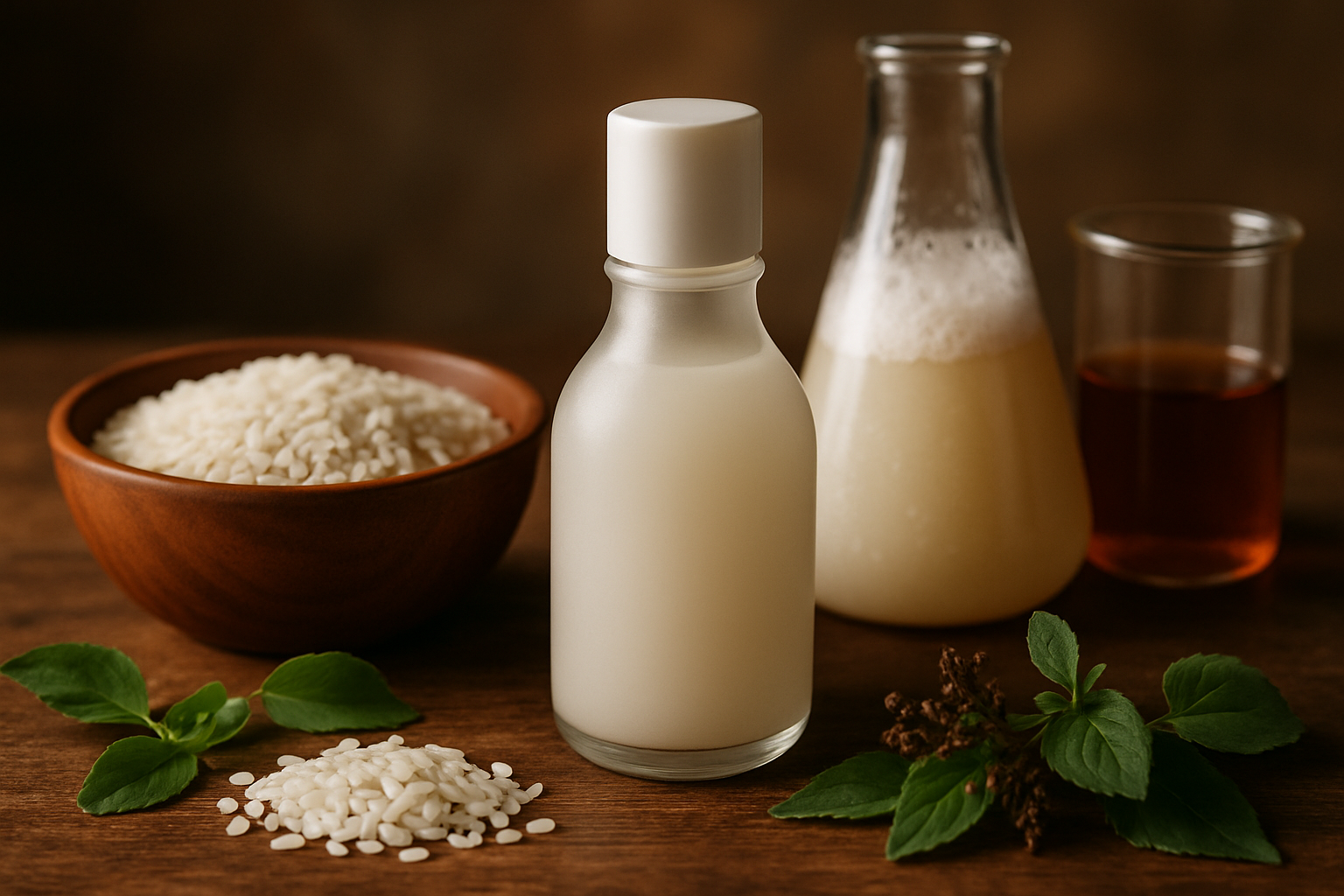Fermentation: The Next Frontier in Skincare
In the ever-evolving world of beauty and skincare, a surprising trend has emerged from an unexpected source: the ancient art of fermentation. This process, long associated with food preservation and brewing, is now making waves in the cosmetics industry. Fermented skincare products are gaining traction among beauty enthusiasts and experts alike, promising enhanced efficacy and a host of skin benefits. As consumers become increasingly interested in natural, science-backed solutions, fermented skincare is positioned at the intersection of tradition and innovation. This burgeoning trend not only offers a fresh approach to addressing common skin concerns but also taps into the growing interest in microbiome-friendly beauty solutions. With its roots in centuries-old practices and its branches reaching into cutting-edge cosmetic science, fermented skincare represents a fascinating evolution in our quest for healthier, more radiant skin.

Historical Context and Cultural Significance
The use of fermented ingredients in beauty rituals is not entirely new. In fact, it has deep roots in many cultures, particularly in East Asia. Korean beauty traditions, for instance, have long incorporated fermented ingredients like rice water and soybean in skincare routines. These practices have been passed down through generations, with fermented ingredients valued for their purported skin-nourishing properties. The modern resurgence of fermented skincare represents a fusion of these traditional practices with contemporary scientific understanding.
Key Ingredients and Their Benefits
Fermented skincare products utilize a wide range of ingredients, each offering unique benefits. Some popular fermented ingredients include:
-
Rice: Fermented rice water is rich in amino acids, vitamins, and minerals, believed to brighten and smooth the skin.
-
Tea: Green tea, when fermented, becomes kombucha, which is packed with antioxidants and probiotics that may help protect and nourish the skin.
-
Herbs: Various herbs, when fermented, can offer enhanced anti-inflammatory and antioxidant properties.
-
Fruits: Fermented fruit extracts can provide gentle exfoliation and brightening effects.
-
Yeast: Certain types of fermented yeast, like galactomyces, are believed to improve skin texture and hydration.
The Role of Probiotics and Microbiome Health
One of the key benefits of fermented skincare is its potential impact on the skin’s microbiome. The fermentation process creates probiotics, which are beneficial bacteria that can support the skin’s natural balance. A healthy skin microbiome is crucial for maintaining skin barrier function, regulating inflammation, and protecting against harmful pathogens. Fermented skincare products may help nurture this delicate ecosystem, potentially leading to healthier, more resilient skin.
Industry Impact and Market Trends
The rise of fermented skincare is reshaping the beauty industry in several ways. Many established brands are incorporating fermented ingredients into their product lines, while new, niche brands are emerging with a focus entirely on fermentation. This trend is also influencing product development strategies, with more companies investing in research to understand and harness the benefits of fermentation in skincare.
Market analysts predict significant growth in the fermented skincare sector over the coming years. This growth is driven by increasing consumer interest in natural, effective skincare solutions and a growing awareness of the importance of the skin microbiome. As more research emerges supporting the benefits of fermented ingredients, this trend is likely to gain further momentum.
Challenges and Considerations
While fermented skincare offers promising benefits, it’s not without challenges. The process of fermentation can be complex and time-consuming, potentially leading to higher product costs. Additionally, the stability and shelf life of fermented ingredients can be a concern, requiring careful formulation and packaging considerations.
It’s also important to note that not all skin types may respond equally to fermented products. As with any skincare regimen, individual results can vary, and some people may experience sensitivity to certain fermented ingredients. Proper patch testing and gradual introduction of new products are always recommended.
Future Directions and Innovations
The future of fermented skincare looks bright, with several exciting developments on the horizon. Researchers are exploring new fermentation techniques and investigating a wider range of ingredients for their potential skin benefits. There’s also growing interest in combining fermented ingredients with other innovative skincare technologies, such as encapsulation methods to enhance ingredient delivery.
Another area of focus is the development of personalized fermented skincare solutions. As our understanding of the skin microbiome grows, there’s potential for creating tailored products that address individual skin needs and microbiome profiles.
Incorporating Fermented Skincare into Your Routine
For those interested in exploring fermented skincare, it’s best to start slowly. Begin by incorporating one fermented product into your existing routine, such as a toner or serum. Pay attention to how your skin responds and adjust accordingly. Look for products that combine fermented ingredients with other proven skincare actives for a comprehensive approach to skin health.
As with any skincare trend, it’s essential to approach fermented products with a balanced perspective. While they offer exciting possibilities, they should be part of a holistic skincare routine that includes proper cleansing, sun protection, and a healthy lifestyle.
In conclusion, fermented skincare represents an innovative frontier in the beauty industry, blending ancient wisdom with modern science. As research continues to uncover the benefits of fermented ingredients, we can expect to see this trend evolve and expand, offering new possibilities for achieving healthy, radiant skin. Whether you’re a skincare enthusiast or a beauty industry professional, keeping an eye on the development of fermented skincare could provide valuable insights into the future of beauty and wellness.






